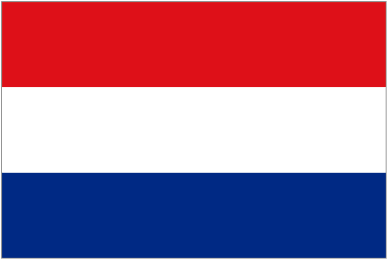Visitors to our site
�
United States�� ��58.1%
��58.1%
� ��58.1%
��58.1%Netherlands�� ��8.6%
��8.6%
� ��8.6%
��8.6%Germany�� ��7.3%
��7.3%
� ��7.3%
��7.3%Bahamas�� ��3.9%
��3.9%
� ��3.9%
��3.9%United Kingdom�� ��3.3%
��3.3%
� ��3.3%
��3.3%China�� ��3.1%
��3.1%
� ��3.1%
��3.1%Ukraine�� ��2.6%
��2.6%
� ��2.6%
��2.6%Russian Federation�� ��2.0%
��2.0%
� ��2.0%
��2.0%Italy�� ��1.1%
��1.1%
� ��1.1%
��1.1%Romania�� ��0.8%
��0.8%
 ��0.8%
��0.8%EuropaColon is a joint partner of
-(2).png)
.png)
EuropaColon launches new initiative for young people with colorectal cancer
- Young Voices United Against Colorectal Cancer

.png)

Jola Gore-Booth moderates at the 9th ESO Colorectal Cancer Observatory - WCGC Barcelona
.png)
-(2).png)
.png)
EuropaColon launches new initiative for young people with colorectal cancer
- Young Voices United Against Colorectal Cancer

.png)

Jola Gore-Booth moderates at the 9th ESO Colorectal Cancer Observatory - WCGC Barcelona
.png)
EU Health Strategy
The European Union Health Strategy is to ensure a high level of health protection across all policies and actions. It has a role in complementing national action on health. This means protecting people from health threats and disease, promoting healthy lifestyles and bringing national authorities in the EU together on health issues.
The EU does not directly influence local health strategy or delivery, instead it makes recommendations where co-operation and joint working could make a difference to the people of Europe. This usually means advising on some of the bigger issues where joint activity between States helps create equality in healthcare,
Two of these are areas that EuropaColon and our partners feel are important for people with colorectal cancer:
- Shared health values: When a Country becomes a member of the EU they agree to support the values of universality, access to good quality care, equity and solidarity. The EU Charter of Fundamental Rights recognises everyone�s right to access preventive healthcare and to benefit from medical treatment.
- �Health is the greatest wealth� - A healthy population is not only good for each of us individually but essential if the EU is to be economically effective. As a result good health in Member States is very important and spending on health is not just a cost but an investment in the Countries� future success.
EuropaColon supports the Patient Rights set out in the collaborative document produced by European Patients Forum and available at www.eu-patient.eu
European Code against Cancer
The European Code against Cancer was originally drawn-up by a committee of cancer experts in 1987 with a number of practical recommendations to prevent cancer, such as adopting healthier lifestyles and participating in screening programmes. This was revised and adopted by the Cancer Experts Committee in 1994 with a third edition� published in 2003.Screening
To assist the Member States with cancer screening, the Commission produced European guidelines for quality assurance in cervical cancer screening (2006), for breast cancer screening and diagnosis (2008) and colorectal cancer screening and diagnosis� (2011) . These guidelines are the first comprehensive EU-wide guidelines for effective population-based screening. The guidelines offer Member States advice to organise their health systems more effectively, including the diagnosis and management of cancers detected in screening.The Guidelines recommend that every citizen of eligible age should receive an official invitation to participate in and benefit from screening and so reduce health inequalities (this is known as formal population screening involving the whole population). EuropaColon supports this comprehensive approach to screening in preference to opportunistic or more casual (individual) approaches to screening as this gives equality to all citizens.
These Guidelines reflect the latest evidence confirming that formal population-wide screening programmes will help reduce deaths from colorectal cancer by up to 15%. Evidence shows that screening leading to early detection of colon cancer is very cost effective, saving large sums of money than people who are diagnosed with later stage colon cancer.
The Guidelines offer clear principles and recommendations to be followed when setting up a screening programme. They cover the whole process from inviting people for screening, to diagnosis and clinical management.
In 2007 population-based programmes were being rolled out nationwide in five countries (Finland, France, Italy, Poland and the United Kingdom). Seven countries had established nationwide non-population-based programmes (Austria, Bulgaria, Czech Republic, Germany, Greece, Latvia and the Slovak Republic). Five countries were planning or piloting a nation-wide population-based programme (Hungary, Cyprus, Portugal, Romania and Slovenia).
EuropaColon believes that the EU adoption of formal population screening is the most effective means to identify and manage colorectal cancer and is disappointed that it is not always adopted. Some countries have adopted opportunistic screening, meaning that screening is available if symptoms are noticed or where there is a family history, or where people voluntarily undergo screening tests. EuropaColon is in favour of and will campaign for formal population screening to be widely adopted. This is the ONLY way to guarantee most colorectal cancers are identified. Our partners will be campaigning to make sure screening is introduced as soon as possible in countries where it is not yet available and for the recommendations to followed to save as many lives as possible.
The Guidelines can be downloaded from � bookshop.europa.eu
European Partnership for Action Against Cancer (EPAAC)
The latest and most important initiative of the European Commission in the field of cancer is the establishment of a European Partnership for Action Against Cancer� in 2009, bringing the efforts of different stakeholders into a joint response to prevent and control cancer. The goal set by the Partnership is to reduce cancer incidence by 15% by 2020.The underlying reasons for setting up the initiative were set out by the Commission:
- Every year, some 3.2 million Europeans are diagnosed with cancer � the second most common cause of death in Europe.
- Apart from the health implications, the economic burden on society is increasing as the European population ages.
- Cancer (death) rates vary dramatically across the EU, both within and between countries; death rates in some countries are twice as high as in others.
- Long-term, sustainable action on cancer is needed to ensure a healthy and prosperous future for Europeans.
- Share information, resources, best practice and expertise to help all EU countries tackle cancer more evenly and effectively,
- Maximise the limited resources available avoid fragmented and duplicated effort,
- Co-ordinate action on cancer involving member countries, scientific experts, patient organisations and other key stakeholders.
- Prevention: one third of all cancers are preventable � prevention is therefore the most cost-effective, long-term cancer strategy. The partnership aims to implement healthy lifestyle measures to counter major risk factors such as poor eating habits, smoking, physical inactivity and alcohol consumption. Early detection can dramatically reduce the impact of cancer and the Partnership estimates that � 125 million quality examinations a year should be carried out in breast, cervical and colorectal cancer screening for all EU citizens of the appropriate age.
- Identifying and spreading good practice in cancer-related healthcare: by identifying, sharing and applying best practice, the Partnership hopes to encourage a multidisciplinary, comprehensive approach to cancer-related healthcare and ensure more effective care and a better quality of life for cancer patients.
- Coordinating cancer research: the Partnership aims to coordinate all areas of cancer research in the EU, from all funding sources, to identify discrepancies, obstacles and research gaps and avoid duplicating research.
- Collecting accurate and comparable information and data: the Partnership aims to examine current obstacles to doing this, and look for solutions, with the goal to enable effective planning and monitoring of cancer strategies throughout the EU.
European Innovation Partnership on Healthy and Active Ageing
In October 2010, an initiative entitled �Innovation Union� was presented as part of the �Europe2020� strategy. The ageing of society has important socio-economic implications, putting pressure on health and social systems. Prevention of ill health in old age can play a major part in successfully addressing these challenges.The Active and Healthy Ageing Innovation Partnership (AHAIP) was officially launched in early 2011 and aims to
- Improve the health and quality of life of older people, enabling them to live active and independent lives as long as possible;
- contribute to the sustainability and efficiency of health and social care systems;
- Foster competitiveness and business opportunities.
- Prevention, screening and early diagnosis
- Care and cure
- Independent living
First pillar:
- Health literacy, patient empowerment, ethics and adherence
- Personal health management
- Prevention, early diagnosis and functional decline
- Guidelines for care, workforce issues, multi-morbidity, poly-pharmacy, frailty, collaborative care
- Multi-morbidity
- Capacity building and replicating successful integrated care systems
- Supporting people with cognitive impairments
- Enhancing deployment and take up of interoperable independent living solutions
- Supporting social inclusion of older people
The Commission will work closely with national governments and a wide range of stakeholders to keep the Strategic Implementation Plan moving forward.
EuropaColon believes that every citizen of Europe should have access to formal population screening, information on how to prevent cancer and lead a healthy lifestyle, and suitable treatment and care if they are diagnosed with cancer.
We will be campaigning and working with other stakeholders to deliver these beliefs both within the EIP and also on our own to make sure that as we age we can be assured of good and effective treatment and care so that we can continue to live as healthy lives as possible for as long as possible and in so doing continue to contribute socially and economically to the future of Europe.
Active Healthy Ageing
People are living longer than ever before and it is expected that the number of people aged 65+ in Europe will almost double over the next 50 years to 151 million in 2060. This is a huge challenge for both economies and for families. The EU is looking at ways to improve the quality of life of older people.With this increase in numbers, health services across Europe will be under a lot more pressure in future. As a result there are plans to change the way care is delivered, moving away from hospital-based care to more home-based services that will bring social and health care together. This is expected to save money and be more focused on the person.
This will mean in future we will each be expected to take more care of ourselves; more information about health will attempt to prevent disease. People will be looking at new models of care that bring health, social, community and self-care closer together.
Another area of interest to politicians is living and working conditions. It is felt these need to be looked at to help older people to remain active and healthy for much longer.
EuropaColon is particularly interested in the emphasis on prevention, screening and early diagnosis. We believe screening is one of the most effective ways to identify, treat and manage symptoms of colorectal cancer. This is an important area of work for us and we will be working closely with our partners to ensure that effective screening is in place in all countries where we are working.
The Economist Intelligence Unit, sponsored by Abbott, recently published a new report looking at ways to extend healthy life years. The report can be downloaded:
digitalresearch.eiu.com
EuropaColon will work closely with EU policy makers to emphasise the importance of screening and early detection as a means to save lives and prevent cancer. We will work with other stakeholders to provide data and examples on how screening and early detection can improve the lives of people as they age while also to reducing pressure on local economies.
Cross-border Healthcare
Travel in the EU has become easier and this can create tensions over where people get their health care and who pays for it. This is a complicated area with both legal and economic implications. After a lot of discussion over many years agreement has been reached and a draft Directive was published in December 2011.The draft Directive, although a compromise, aims to strengthen patient care across the EU, to develop shared good practice and to develop collaboration between health systems where this does not already exist.
The draft Directive sets out the rights of patients who seek healthcare in another Member State making provision for the introduction of a general framework to:
Clarify patients� rights with regard to accessing cross-border healthcare provision;
Guarantee the safety, quality and efficiency of care that they will receive in another EU Member State;
Promote cooperation between Member States on healthcare matters.
EuropaColon will be working with MEPs to make sure that people with colorectal cancer are able to receive the most appropriate care, even if this entails receiving care in another country, either because the hospital is more conveniently located or because the oncologists or surgeons are more able to manage a specific condition.



